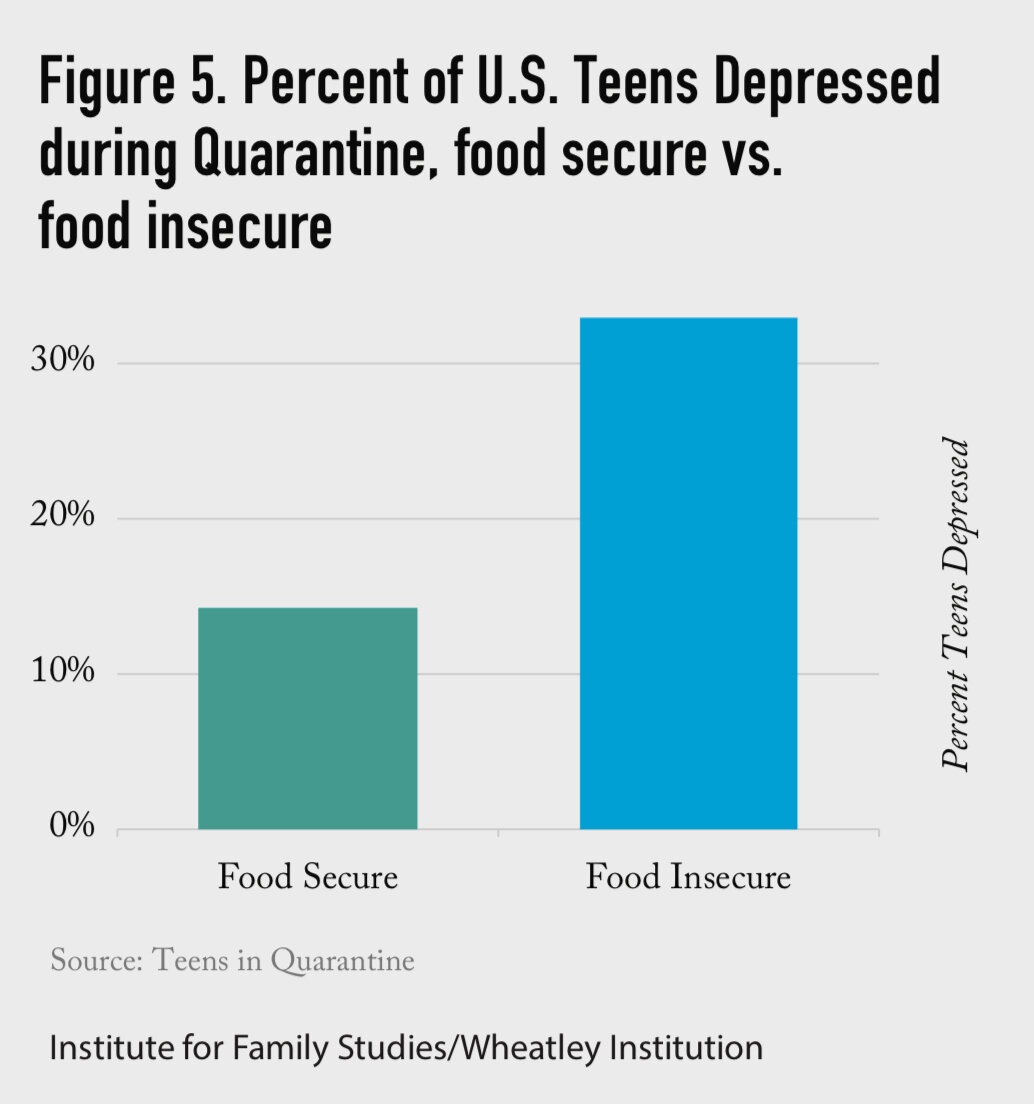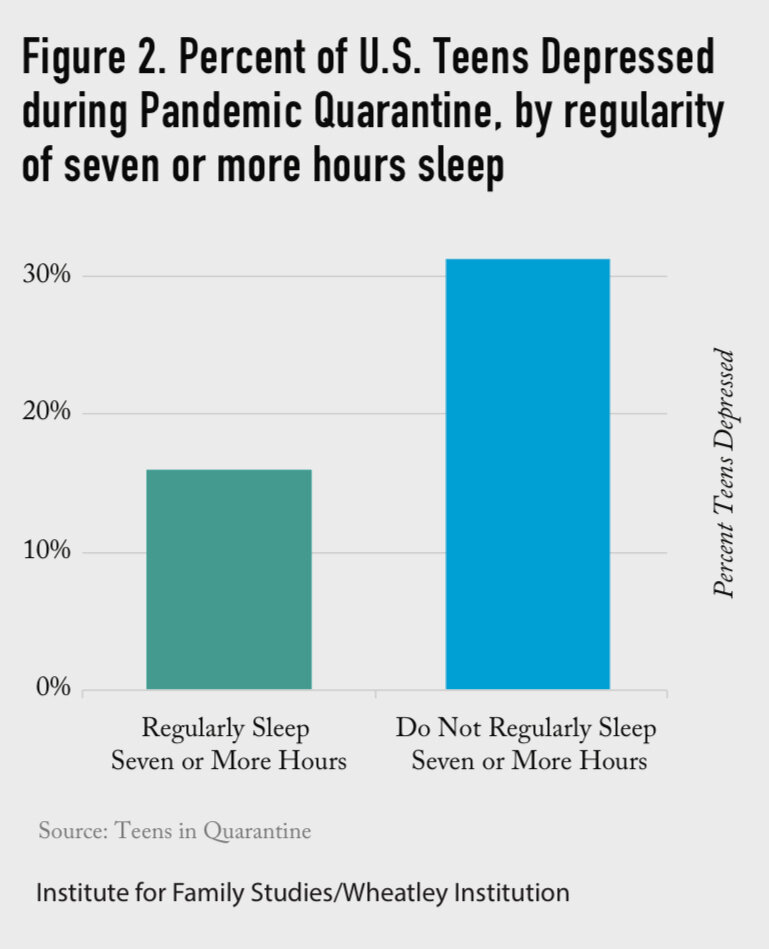How Emotional Teens Handled Loneliness, Fear and Forced Isolation
It’s time to assess the damage. What are the long term consequences of the complete disruption of our lives?
More importantly, what are the long term consequences for our teens, particularly those that were already at-risk? I’m talking about the 67M Americans known as Generation Z or Gen Z. I like to refer to them as The Young and the Restless, but I digress.
These kids are more connected and more socially aware than any other generation in history. And, they know everything. Just ask them…..or their parents.
Historically, this population has proven to be at-risk when it becomes to mental health and wellbeing. So it makes sense to assess how these kids are doing after the year from Hell.
There’s only one way to predict the long-term impact of the pandemic. Let’s turn back the pages of history, together. How did the Great Depression of the early 1930’s affect the same age cohort?
Like the Pandemic, the Depression was a time of extreme desperation. Jobs were scarce in the 1930’s and pretty much everything was in short supply, including hope.
Many families lost their economic standing and slipped into poverty. One in four families were unemployed. People went hungry or were under-nourished in record numbers. Family members “stepped up” as the economic viability of most households took a belly flop in the proverbial deep end. Young people simply dropped out of school to work. Boys and mothers took part time jobs outside of the home. Girls took over the running of the household. Kids simply grew up faster. And they learned survival skills that would later kickstart an entire generation.
Surprisingly, academic studies later confirmed that this deprivation and extreme anxiety had very few long-term repercussions.
The Great Depression actually produced happier, healthier adults in the long term. Go figure.
So what can we learn from this? First of all, stop worrying so much. Everything is gonna be okay. Second, the early results of studies in 2020 are downright encouraging, particularly for those children with two-parent families.
See, the pandemic created an opportunity to pause; to slow down. And, we all needed it, especially the kids. A 2020 study by the Institute for Family Studies presents some surprising findings. No, seriously, you aren’t gonna believe what I’m about to tell you.
With most activities cancelled for both teens and adults, there was more unstructured time. American teens reported an increase in the amount quality time spent with their families, as parents quickly adjusted to the new, work-from-home routine.
This created greater margin for engagement. More fishing, hiking, board games and the like.
Families started to have more and deeper conversations. A whopping 68 percent of teens suggested that their families had become closer as a result of the lockdown. And, more than half of respondents suggested their families now ate dinner together more often.
And, those kids reported much lower rates of anxiety and depression. Children who were food secure were depressed at half the rate of those who were food insecure.
And, second, teens reported a significant increase in the amount of sleep when compared to pre-pandemic levels.
It turns out there is a lot of wasted time spent showering, riding the bus and roaming through the halls dodging the Assistant Principal. Instead that frictional time was spent sleeping. Children who slept seven or more hours per day reported rates of depression nearly half of those who slept less than seven hours.
As a result of all this sleeping and new fam-time teen rates of loneliness and depression were lower in 2020 than 2018. Teens were only slightly more unhappy But, let’s get real, they’re teenagers: happiness is relative.
Now, I know what you’re thinking. Teens spent more time at home. And, most of that leisure time was spent on texting, video gaming and using social media (Facebook, Snapchat, Instagram, etc.). Not so fast, Dr. Phil.
Teens were spending more time video chatting with friends and watching Netflix. But they spent less time on Social Media. And, a lot less time texting each other.
Before you start patting yourself on the back, it’s important to note that kids were spending “less” time on Social Media. They were still wearing out that smartphone.
But, 47 percent of teens said when they were on a platform they spent less time mindlessly scrolling. Probably cause there wasn’t much action out there. Four out of five teens agreed that those platforms allowed for much needed connection with friends during the lockdown. More than half claim that Social Media was a useful tool for managing their anxiety.
One aspect the study fails to contemplate is the use of Tik-Tok as the bastard stepchild of social media. Teens may not view that platform as Social, but it is. There’s nothing more addictive than mindlessly scrolling through funny cat videos and liking your friend’s posts. Like this video which has been viewed 2.2 Billion times. Tik-Tok is to Facebook as Netflix is to Cable Television.
Like their counterparts of nearly 100 years ago, 53 percent of American teens said they became more resilient and stronger mentally during the pandemic.
Before you go, let’s turn the page in our history book. (This is the best part.) Those tough kids who developed their resilience during the Great Depression weren’t finished. They re-entered the pages of history again in 1945 as The Greatest Generation. And, their grit and determination saved the world.
Incredible artwork like this can be found at https://johnpweiss.com/
So before you start writing off the today’s Gen Z’ers, take a peek back in history. These kids may just surprise us all. Who knows? They may re-enter the pages of history again in 2031 and save the world. Stay tuned.
Hey, before you go, how about forwarding this article to a few friends or simply click below and repost on Facebook? Maybe it might just help some other parents feel better about things. #tomgreene #nothingbeatsnice








